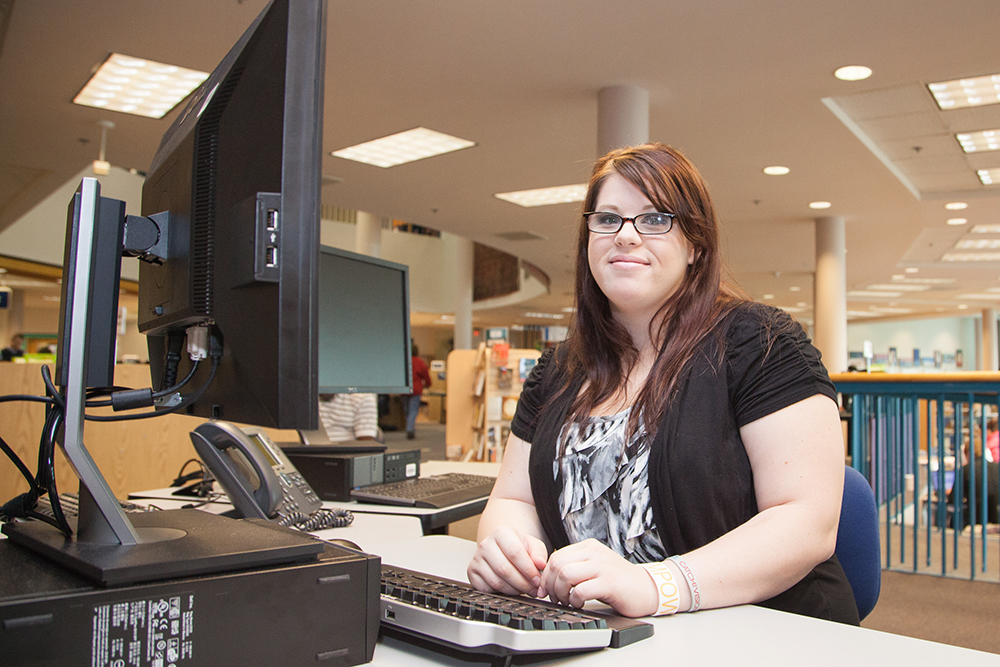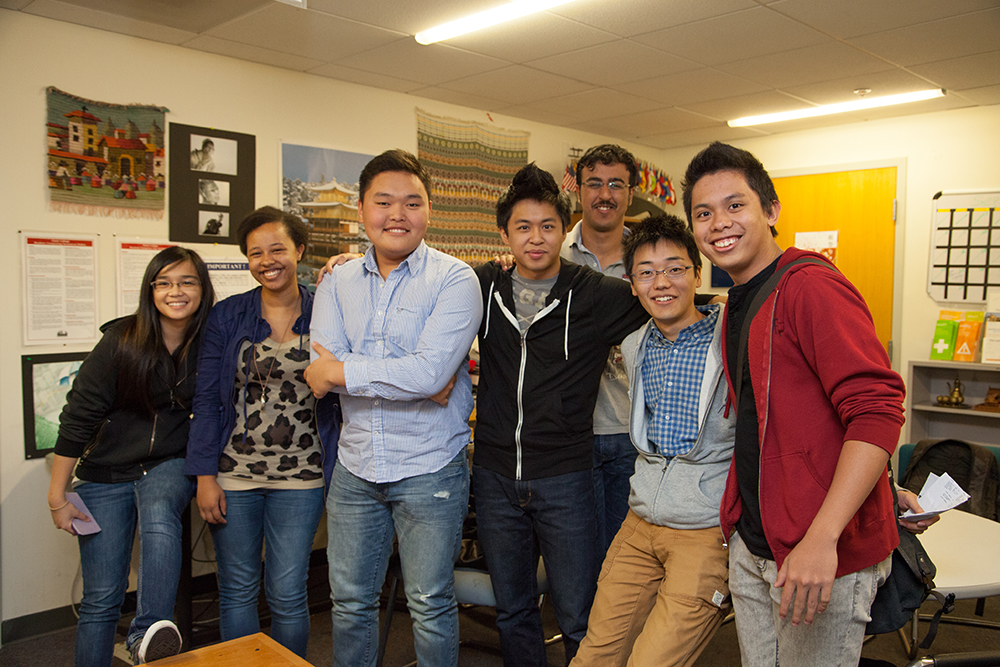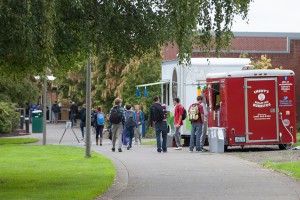New agreement’s a HIIT

HIIT student Rachel Cribben says the ability to pursue a bachelor’s degree without leaving her home in Vancouver is “extremely important” to her success in the program.
In a move that will provide residents of Southwest Washington with the opportunity to train for high-paying jobs in a rapidly expanding field, Clark College and Bellevue College have signed an articulation agreement that allows students at Clark to earn a bachelor’s degree in Health Informatics Information Technology (HIIT) from Bellevue through online and remote classes—without leaving the Clark College campus.
“In our ongoing conversations with regional employers, we realized there was a need for Health Informatics Information Technology professionals and responded quickly to that need, but we also realized that there would be a need for students to take their education to the next level,” said Debra Ortiz, director of allied health programs at Clark College. “This is a great opportunity for students to stay here in the region and get a bachelor’s degree in a rapidly growing field.”
Health Informatics is the science of managing electronic health records and coordinating the computer information systems used by hospitals, clinics, insurance companies, and health care professionals. HIIT professionals work in customizing software for large health care institutions, as well as in data analysis, training clinicians on how to use computer systems, database management, and many other related fields. Demand for these skilled professionals is increasing as more and more health care organizations switch to electronic records-keeping, and as the graying Baby Boomers spur an increase in demand for health care. Indeed, the Bureau for Labor Statistics predicts that demand for HIIT specialists will increase by 21 percent between 2010 and 2020—a rate that’s 50 percent higher than average job growth in all fields.
Clark introduced its HIIT program in winter 2012 in response to regional workforce needs. From the beginning, the program was designed to allow graduates to transfer to four-year institutions, including the Oregon Institute of Technology. However, this new agreement with Bellevue College allows students to continue paying in-state tuition while pursuing their Bachelor of Science degree; because the classes are offered online or remotely, the agreement also allows students to complete their four-year degree without leaving Vancouver.
“We’re thrilled to have this opportunity to collaborate with our colleagues at Clark so that we can offer students convenient access to our online courses,” said Dr. Pamela Charney, program chair of Healthcare Information Technology & Management at Bellevue. “This will give students from Clark a clear pathway to professional success in the exciting new arena of healthcare IT.”
Rachel Cribben is one of those students. Cribben, 27, earned a certificate for medical billing and coding shortly after graduating from high school. But after she and her husband separated in 2011, she realized that she would need to get a degree to be able to support her two daughters, ages 3 and 5. Her mother, who works at Clark, told her about the HIIT program.
Cribben says HIIT is a good fit for her personality and interests. “I like the healthcare field, but I’m more of a behind-the-scenes kind of person,” she says, adding that she hopes to find a job in a hospital’s information technology department and eventually manage her own team of specialists there.
Cribben says the material has at times been challenging. “I’m taking Intro to Local Area Networks right now, and I opened up the textbook and saw all these pictures of wires and diagrams and thought, ‘How am I going to learn this?'” she says. “But then I saw a picture of a [network interface card] and I recognized it from when my brother built my computer. I realized I actually knew what it was already, and it made me think, ‘OK, I can do this.'”
Cribben plans to earn her associate degree from Clark in 2016 and her bachelor’s degree through the Bellevue partnership a year after that. For her, the ability to be able to complete her degree without relocating–and primarily through online classes, so that she can continue to care for her children while being a full-time student–is crucial to her success in the program.
“It’s extremely important,” she says. “I want to do this, and I want to do it well. I want to show my girls that you can do anything that you put your mind to.”
Photo: Clark College/Jenny Shadley

